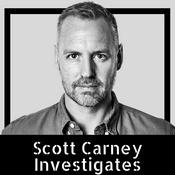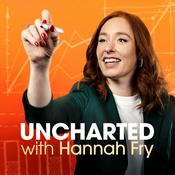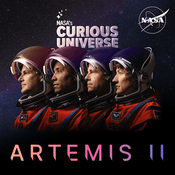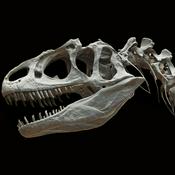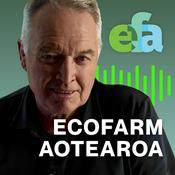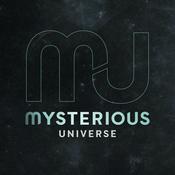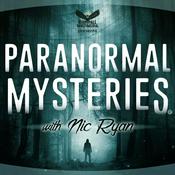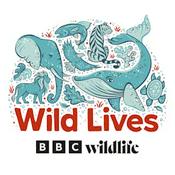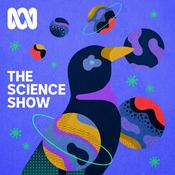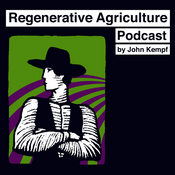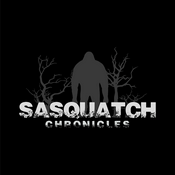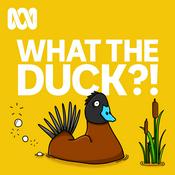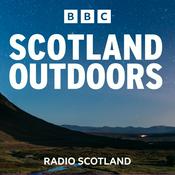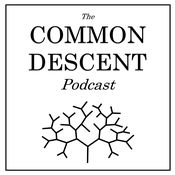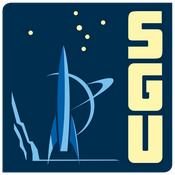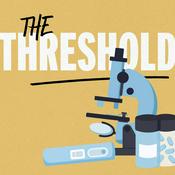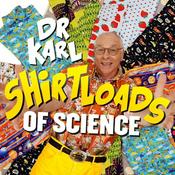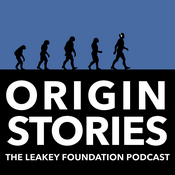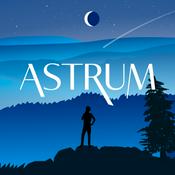107 episodes

What We Don't Know About Deep-Sea Mining
30/12/2025 | 28 mins.
What happens when an entire industry rushes forward before science can catch up? In this episode of Ocean Science Radio, we sit down with Dr. Andrew Thaler, deep-sea ecologist and CEO of Blackbeard Biologic, to explore his groundbreaking report for the Convention on Migratory Species that reveals exactly how much we don't know about deep-sea mining's impacts on whales, dolphins, sharks, turtles, and other highly migratory species. While most deep-sea mining research has focused on the immediate destruction of seafloor ecosystems, Andrew's report exposes a more troubling reality: we have massive knowledge gaps about how mining operations—with their noise, sediment plumes, and habitat disruption—might affect species that travel thousands of miles across interconnected ocean basins. From sea turtles navigating by magnetic fields to whales relying on acoustic communication, these far-reaching impacts remain largely unstudied even as the industry accelerates toward commercial production. The conversation takes a timely turn as we discuss the Bureau of Ocean Energy Management's controversial Request for Information for mining in U.S. waters off the Commonwealth of the Northern Mariana Islands. Andrew breaks down why this represents a significant shift from international deep-sea mining debates, and what it means that communities near the Mariana Trench—with only a 30-day comment period and no guaranteed revenue sharing—are being asked to accept an industry that science hasn't fully evaluated. As the Trump administration pushes to fast-track deep-sea mining for critical minerals while international bodies like the CMS urge precaution, this episode asks the essential question: what's at stake when we mine what we haven't studied? Join us for a conversation that bridges cutting-edge marine science, environmental justice, and the real-world policy decisions happening right now in the deep ocean.

Protecting Half the Planet - The High Seas Treaty Comes Alive
27/11/2025 | 42 mins.
After nearly two decades of negotiations, the world has finally agreed on a framework to protect the high seas - that vast expanse of ocean beyond any nation's control that covers nearly half our planet's surface. On January 17th, 2026, the BBNJ Agreement (Biodiversity Beyond National Jurisdiction), commonly known as the High Seas Treaty, officially enters into force, becoming international law.Join us as we explore this historic moment with two experts at the heart of the effort. Jeremy Raguain, who works with the Alliance of Small Island States, shares insights on Africa's leadership in the negotiations and what meaningful capacity building looks like for developing nations. Rebecca Hubbard, Director of the High Seas Alliance, takes us through the coalition-building journey from 2002 to today, explaining the treaty's four pillars: marine protected areas, equitable benefit-sharing from marine genetic resources, environmental impact assessments, and capacity building.This isn't just another international agreement - it's the missing piece that could finally allow us to protect 30% of the ocean by 2030, ensure that benefits from ocean resources flow equitably to all nations, and shift away from "parachute science" toward true partnerships. From small island nations reclaiming their identity as "big ocean states" to the complex work of enforcing protections in the world's most remote waters, this episode explores what becomes possible when the world comes together to protect what belongs to us all.Whether you live on a coast or in a landlocked country, half the oxygen you breathe comes from the ocean. Its health is humanity's health. Discover why this treaty matters for everyone, and what you can do to support its implementation.Featured Guests:Jeremy Raguain, AOSIS Fellowship Director & Ocean Governance SpecialistRebecca Hubbard, Director of the High Seas AllianceEpisode Length: 35-40 minutes

Art Meets Ocean - Inside Portland's Revolutionary Cartoon Aquarium
30/10/2025 | 28 mins.
Episode DescriptionWhat happens when you combine marine biology expertise with immersive art? You get the world's only cartoon aquarium—and it's right here in Portland.Join us as we explore the Portland Aquarium, an innovative art installation that's reimagining ocean education. Artist Mike Bennett and marine biologist Chanel Hason have created an experience featuring over 100 hand-painted marine species across six biomes—with zero live animals and maximum imagination.Discover how this unique collaboration addresses real challenges in science communication: How do you show people a blue whale or giant squid when you can't keep them in captivity? How do you bring ocean education to communities without access to traditional aquariums? And how can art become a gateway to marine conservation?From the technical details of getting sea otter tails scientifically accurate to the emotional power of painted seagulls with flapping wings, Mike and Chanel share the story of transforming a vacant downtown Portland space into a hub of creativity, education, and community connection—complete with support for real conservation work through the Elakha Alliance's sea otter reintroduction efforts.Featured GuestsMike Bennett - Portland-based artist and creator of immersive educational installations including the Portland AquariumChanel Hason - Marine biologist and Director of Outreach & Community Relations at Elakha AllianceKey TopicsThe intersection of art and marine science educationAdvantages of artistic representations versus traditional aquariumsScientific accuracy in creative work (yes, sea otter tail length matters!)Bringing ocean education to landlocked communitiesCreating community spaces through immersive artSupporting marine conservation through creative collaborationThe Elakha Alliance's work to reintroduce sea otters to OregonEpisode HighlightsWhy Portland's cartoon aquarium features species you'd never see in a traditional aquarium—like blue whales and giant squidHow Mike's childhood visits to the Baltimore Aquarium inspired a career in immersive animal educationThe viral success of Mike's pandemic-era "A, B, Sea" installation that attracted 1,000+ visitors to his front yardChanel's emotional connection to seeing the first footage of a living giant squidHow the installation transformed a downtown corner from "graffiti and cigarette butts" to "sidewalk chalk and bubbles"The truth about blobfish: why they look so different at the surface versus the deep seaCreating animatronic seagulls and working with composer RAC to bring the installation to lifePlans for a portable version to bring ocean education to schools in landlocked statesMentioned in This EpisodeOrganizations:Elakha Alliance - Working to reintroduce sea otters to the Oregon coastBig Fish Lab at Oregon State UniversityImaginary Planet - Portland animation studioThe Portland AquariumLocation: Broadway & Alder, Downtown Portland, OregonOpen 7 days a weekInstagram: @theportlandaquariumGeneral admission: $14 | Children 2-12: $10 | Under 2: FreeComing Soon: Zoo Aquarium Podcast - Mike and Chanel's upcoming show answering kids' questions about animalsQuote of the Episode"It's the only cartoon aquarium in the world, which I think is really special. And there's a blue whale in the aquarium and some wild deep sea critters that couldn't be held in captivity no matter how you tried." - Chanel HasonWhy This MattersThe Portland Aquarium demonstrates how creative collaboration between artists and scientists can solve real problems in science communication and conservation outreach. By making ocean education accessible, affordable, and imaginative, Mike and Chanel are proving that wonder—and learning—can come in many forms.Ocean Science Radio brings you the latest, greatest, and sometimes deepest stories in the ocean. Hosted by Andrew Kornblatt and Dr. Frances Farabaugh.

Waste(d) on Ocean Science Radio
30/9/2025 | 16 mins.
What happens after you flush? Most of us don't think about it—but maybe we should. In this eye-opening episode, we dive into one of the ocean's biggest but least discussed threats: wastewater pollution.Join us as we talk with Jos Hill, Program Director for The Nature Conservancy's Wastewater Pollution Program and creator of the groundbreaking podcast "waste(d)water." Jos reveals the shocking scale of this crisis: 80% of wastewater worldwide is inadequately treated, 58% of coral reefs are exposed to wastewater pollution, and wastewater accounts for a staggering 40% of coastal nutrient pollution—nearly as much as agriculture.Discover how even highly treated wastewater can devastate marine ecosystems, why coral disease outbreaks in the Florida Keys have been traced back to human gut pathogens, and how nutrient-rich wastewater is making coral reefs more vulnerable to marine heat waves and climate change.But this isn't just doom and gloom—Jos shares inspiring recovery stories from Kaneohe Bay in Hawaii and Tampa Bay in Florida, proving that when pollution is addressed, ecosystems can bounce back. Learn about innovative nature-based solutions, including treatment gardens that clean water while growing food for coastal communities.From the intersection of wastewater pollution and social justice to practical steps you can take in your own community, this conversation breaks the taboo around a topic that affects every person on the planet. As Jos reminds us: everyone goes to the toilet, so this issue is relevant to everyone.It's time to start talking about the dirty secret of ocean pollution—because we can't solve problems we won't discuss.Featured Guest: Jos Hill, Program Director, Wastewater Pollution Program, The Nature ConservancyLearn more: Check out the waste(d)water podcast and follow @wastedwaterpod wherever you listen to podcasts.

RHODY's Great Lakes Adventure - ROV Technology Meets Shipwreck Archaeology
31/7/2025 | 23 mins.
Dive into the freshwater frontier of ocean exploration as we explore how a revolutionary compact ROV is transforming underwater archaeology in the Great Lakes. Join us for the incredible story of the first comprehensive survey of shipwrecks in Lake Ontario National Marine Sanctuary, where cutting-edge technology meets centuries-old maritime history.Discover how RHODY - a nimble, acrobatic underwater robot that can be transported in the back of a truck - recently surveyed 17 shipwrecks with unprecedented detail. From 3D photorealistic models created with gaming technology to students piloting sophisticated ROVs using Xbox controllers, this expedition is redefining what's possible in ocean exploration.Hear the thrilling tale of Susanna Maycut, a student who made maritime history during a midnight shift, discovering a previously unknown shipwreck while processing sonar data for the first time. Learn how this expedition democratized ocean exploration by prioritizing student involvement, connecting with 15 classrooms in real-time, and even enabling a paralyzed student to pilot the ROV remotely from his home.This episode showcases how modern ocean science is becoming more accessible, inclusive, and community-connected. From the spooky beauty of century-old shipwrecks preserved in Lake Ontario's cold waters to the practical applications of emergency response and archaeological documentation, RHODY represents the future of underwater exploration.Whether you're fascinated by maritime archaeology, excited about technological innovation, or inspired by student-led discovery, this episode proves that some of our most incredible adventures are waiting right in our own backyard waters.Guests:Adam Soule - Professor, University of Rhode Island Graduate School of Oceanography & Executive Director, NOAA Ocean Exploration Cooperative InstituteHolly Pettus - Project Manager, Ocean Exploration Cooperative Institute & Deputy Expedition Leader, Lake Ontario Expedition
More Science podcasts
Trending Science podcasts
About Ocean Science Radio
Listen to Ocean Science Radio, All In The Mind and many other podcasts from around the world with the radio.net app
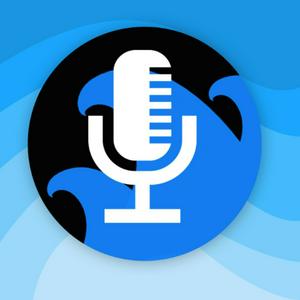
Get the free radio.net app
- Stations and podcasts to bookmark
- Stream via Wi-Fi or Bluetooth
- Supports Carplay & Android Auto
- Many other app features
Get the free radio.net app
- Stations and podcasts to bookmark
- Stream via Wi-Fi or Bluetooth
- Supports Carplay & Android Auto
- Many other app features


Ocean Science Radio
download the app,
start listening.












